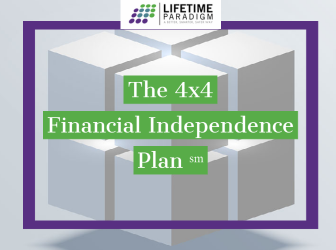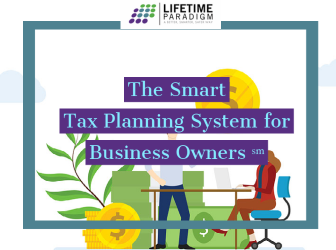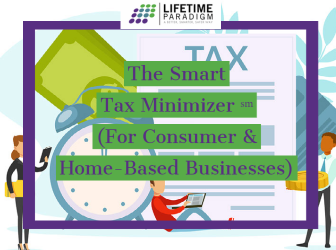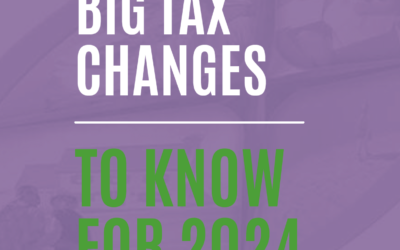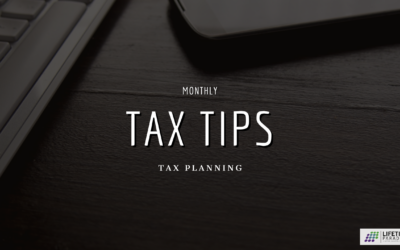Tax Planning
Tax-Deductible Business Expansion Beats Capitalization
Bradford Tax Institute
Tax deductions put cash in your pocket and make you smile.
Capitalized business acquisition expenses don’t make you smile because they generally produce no tax cash benefit until you get out of the business, if ever. And then that belated benefit, if realized, is at a fraction of your tax bracket because it simply reduces your capital gains, not your ordinary income.
In between the smile and no smile, you have start-up tax deductions that allow an immediate deduction of up to $5,000 and then require 15-year amortization on amounts not eligible for the immediate deduction.
This article explains how you can benefit from a tax-deductible business expansion.
Tax-Deductible Business Expansion
Here we cover the basic tax rules that apply to a business expansion.
General tax rule: You may deduct, as an ordinary and necessary expense, the costs of expanding your existing business.1
Obviously, the key is to have an existing trade or business that you can expand.2 The IRS and the courts have ruled that the following costs are deductible as business expansion expenses:
- Developing a new sales territory3
- Promotional activities to increase sales4
- Start-up of new equipment for existing business5
- Expenses of a residential developer investigating development of industrial sites6
- Addition of new branches by a bank7
New Line of Business
If you start a new line of business, you treat the expenses of start-up under the start-up rules.8 Defining a new line of business is a question of fact that is not always easily resolved.
Example. Fragrance, Inc., manufactures and imports fragrances and cosmetics. At first, it sold its goods only at the wholesale level. Later, to broaden its base, the company opened a retail boutique. The store was a great success.
The company then opened 11 more retail stores.
IRS Ruling. In technical advice, the IRS ruled that: 9
- the company’s first retail boutique was a new business; and
- the 11 additional boutiques were simply an expansion of an existing business.
Thus, the company would treat the costs of opening the first boutique as start-up expenses; however, the costs of getting the other 11 boutiques up and running are those tax-deductible, tax-favored ordinary and necessary business expenses, deductible as incurred.
Clarifying the Separate Entity Deduction
In its audit manual, the IRS says that expanding your business by creating a new corporation does not produce immediately deductible business expansion expenses. Instead, the new corporation is a new business that’s incurring start-up expenses.10
The separate entity theory is well stated in a private ruling about the opening of 28 restaurants by a taxpayer who had similar existing restaurants operating under the same trade name in other geographical locations.11
The taxpayer wanted to know if expenditures incurred in relocating managers and interviewing, hiring, and training a work force in connection with the establishment of the 28 new restaurants are:
- deductible as ordinary and necessary business expenses or
- if the costs are capital expenditures under IRC Section 263. 12
The IRS ruled that the concept of “start-up” expenses does not apply to 26 of the 28 new restaurants that operate within the existing corporate structure. The IRS further ruled that the expenses for the 26 restaurants do not result in the creation or enhancement of a separate and distinct asset; accordingly, the corporation may immediately deduct the expansion expenses as tax-favored ordinary and necessary expenses.13
The two remaining restaurants are indistinguishable from any of the other 26 restaurants, but each of these two restaurants was formed as a corporation to satisfy local ownership requirements for liquor licenses. The IRS ruled that the pre-opening costs incurred by the two newly formed corporations are start-up costs.14
Unsettling Possibilities
The deduction for business expansion in the examples above is clear, but some unsettling possibilities exist.
Good news. Revenue Ruling 2000-4 follows the examples above. That’s instructive, because we have the IRS following the precedent of Briarcliff Candy for deducting business expansion expenses.15
Revenue Ruling 2000-4 also considers /NDOPCO, but follows Briarcliff Candy. /NDOPC016 is a bad-news case where the Supreme Court held that the costs of evaluating a friendly takeover offer had to be capitalized.
The IRS had the opportunity to put any conflicts about deducting or capitalizing business expansion costs to rest when in 2003 it issued its capitalization of intangibles regulations, but it failed to address business expansion costs in those regulations.17
In NCNB, the Fourth Circuit allowed deductions for the costs of developing branch banks where the taxpayer was already in the banking business.18 This case followed Briarcliff Candy and noted that the legislative history of IRC Section 195 called for deducting business expansion costs.
However, in Central Texas Savings & Loan Association, the Fifth Circuit rejected the conclusions in NCNB and required the capitalization of business expansion costs.19 So now we have a conflict between the Fourth and Fifth Circuits.
Planning Thoughts
The /NDOPCO decision is unfortunate in that it conflicts with Briarcliff Candy, but INDOPCO does not appear to represent precedent to the IRS for deducting business expansion expenses such as the ones discussed in this article.
The fly in the ointment is the Fifth Circuit. If you live in the Fifth Circuit, you are governed by precedent for that circuit. That’s bad news if you are expanding a business because you have to plan for the adverse effects of the decision in Central Texas Savings & Loan Association.
In summary, if you live in other than the Fifth Circuit, you should have little trouble deducting business expansion costs like those described in this article.
1 IRC Section 162(a); Briarcliff Candy Corp. v. Commr., 475 F2d 775 (2nd Cir 1973).
2 Revenue Ruling 56-181; Briarcliff Candy Corp. v. Commr., 475 F2d 775 (2d Cir 1973).
3 Briarcliff Candy Corp. v. Commr., 475 F2d 775 (2d Cir 1973).
4 Revenue Ruling 56-181.
5 Cleveland Electric Illuminating Co v. U.S., 7 Cl Ct 220 (1985), 85-1 USTC 119128, 55 AFTR2d 85-652.
6 J. W. York v. Commr., 261 F2d 421 (4th Cir 1958).
7 NCNB Corp. v. U.S. 684 F2d 285 (4th Cir 1982), 50 AFTR2d 82-5281.
8 Godfrey v. Commr., 335 F2d 82 (6th Cir 1964), 14 AFTR2d 5338, Cert Denied 379 US 966.
9 Private Letter Ruling 9331001.
10 Internal Revenue Manual Section 4.43.1.13.6.4(7)— Pre-Opening Store Expenses (Last Revised: 07-23-2009).
11 Private Letter Ruling 8423005.
12 IRC Section 263.
13 Private Letter Ruling 8423005; see also Technical Advice Memorandum 9645002 that reaches a similar conclusion and is written after the Supreme Court’s decision in INDOPCO.
14 Ibid.
15 Rev. Rul. 2000-4; Briarcliff Candy Corp. v. Commr., 475 F.2d 775 (2d Cir. 1973).
16 INDOPCO, Inc. v. Comr., 503 U.S. 79 (1992).
17 Reg. Section 1.263(a)-4(b)(1); T.D. 9107.
18 NCNB CORP. v. U.S., 50 AFTR 2d 82-5281 , 684 F2d 285, 82-2 USTC 119469 (CA4, 7/13/1982).
19 Central Texas Svgs. & Loan Assn. v. U.S., 53 AFTR 2d 84-1474, 731 F2d 1181, 84-1 USTC 119471 (CA5, 5/11/1984).
Related Newsletter: 14 Tax Reduction Strategies for the Self-Employed


SERVICES WE OFFER RELATED TO THIS TOPIC
The information contained in this post is for general use and educational purposes only. However, we do offer specific services to our clients to help them implement the strategies mentioned above. For specific information and to determine if these services may be a good fit for you, please select any of the services listed below.
For more information on tax planning, visit our Tax Planning page to see our list of services.
Your Co-Owned Business Probably Needs a Buy-Sell Agreement
Tax PlanningBradford Tax InstituteSay you’re a co-owner of an existing business. Or you might be buying an existing...
Big Tax Changes to Know for 2024
Financial Guides2024 has brought some big tax changes with it. It’s essential to stay informed about these...
The Smart Tax Planning Newsletter March 2024
Tax PlanningIn This Issue: IRAs for Young Adults Get Up to $32,220 in Sick and Family Leave Tax Credits New Crypto Tax...

